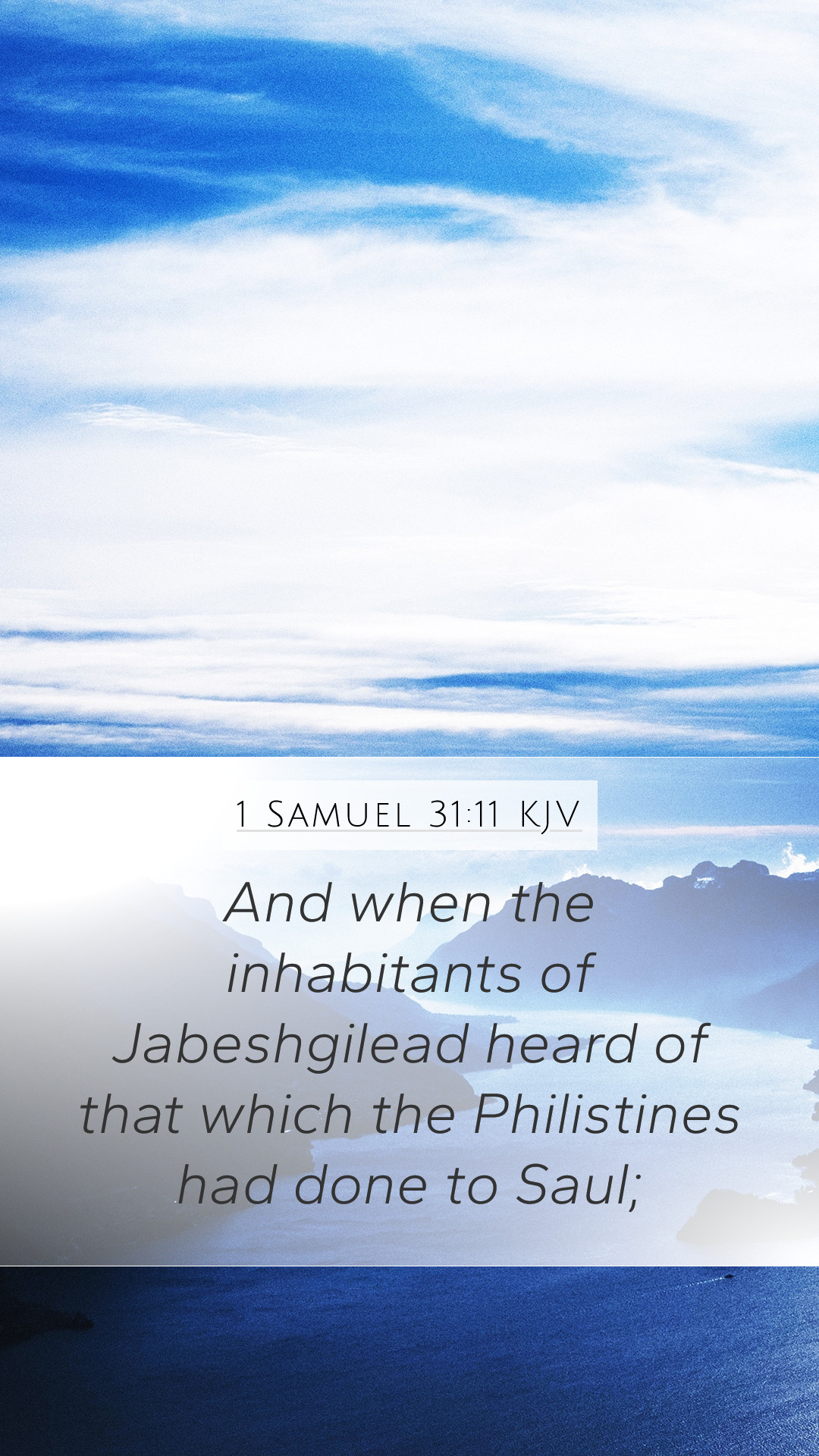Understanding 1 Samuel 31:11: A Comprehensive Commentary
Key Verse: 1 Samuel 31:11 - "And when the inhabitants of Jabesh-gilead heard of that which the Philistines had done to Saul,"
Meaning of the Verse
This verse marks a pivotal moment in the narrative of Saul, the first king of Israel. The Philistines have conquered Saul and brutally desecrated his body, leading to an outpouring of grief and respect from the Israelites, particularly those from Jabesh-gilead.
Context and Background
1 Samuel 31 describes the final battle of King Saul against the Philistines, highlighting themes of tragedy, honor, and the consequences of leadership failure. Understanding this context is essential for a deeper comprehension of the events that transpired.
Verse Analysis
-
Historical Background:
Jabesh-gilead was a city notable for its loyalty to Saul, as documented earlier in the narrative. Their actions post-Saul's death underscore a historic commitment to honor their king even in death.
-
Emotional Response:
The inhabitants' reaction speaks to the grief that accompanies loss. It invites readers to reflect on the emotional weight of leadership and the bonds between a ruler and his people.
Interpretative Insights from Commentaries
Matthew Henry: Emphasizes the loyalty of Jabesh-gilead to Saul, highlighting the city’s previous rescue by Saul (1 Samuel 11). Their mourning reflects not only personal loss but also a collective sense of duty towards their king.
Albert Barnes: Notes that this verse conveys the importance of remembrance and respect for those who have led us, suggesting that the actions of Jabesh-gilead were not merely emotional but also a political statement against the Philistines.
Adam Clarke: Offers insight into the mourning customs of the period, suggesting that the act of mourning has both spiritual significance and a practical aspect of rallying the people against their oppressors.
Thematic Elements
- Leadership and Accountability: Saul’s demise can be viewed through the lens of leadership responsibility. His failures are echoed in the grief of his people who are now susceptible to further oppression.
- Courage and Loyalty: The inhabitants of Jabesh-gilead take a bold step in honoring Saul, thus embodying principles of loyalty and courage in the face of adversity.
Applications for Today
1 Samuel 31:11 serves as a reminder of the importance of honoring those who have led us, even when circumstances have turned tragic. It encourages reflection on our relationships with leaders and the values of loyalty and respect.
Cross References
- 1 Samuel 11:1-15 - Saul's military leadership and the early days of his reign.
- 2 Samuel 1:11-12 - David’s lament for Saul reflects similar themes of mourning and respect.
- 1 Chronicles 10:8-12 - The aftermath of Saul’s death and honorable acts by the people.
Conclusion
1 Samuel 31:11 not only conveys a historical event but also engages readers to understand themes of honor, loyalty, and the emotional complexities of leadership. For anyone involved in Bible study groups or those seeking Bible study resources, this passage offers rich material for Bible study insights and personal reflection.
Further Study Suggestions
- Explore the historical context of 1 Samuel within the broader narratives of the Old Testament.
- Investigate how other biblical leaders dealt with the consequences of their actions.
- Reflect on modern implications of loyalty and leadership in today’s world.
This scripture engages profound questions of faith, society, and morality, stirring deep thought about the nature of leadership and its aftermath.


